Transforming your blog into a revenue-generating machine is easier with the right tools. Ad networks connect your content with advertisers eager to reach your audience. But with so many options out there, how do you choose the right one for your blog?
In this guide, we’ll explore the best ad networks for blogs, helping you unlock your blog’s earning potential without compromising the reader experience.
15 Best Ad Networks for Blogs
Selecting the best ad network for your blog requires evaluating your traffic, audience engagement, and content type. Here’s a look at the top ad networks, each tailored to different needs and monetization strategies.
1. Google AdSense
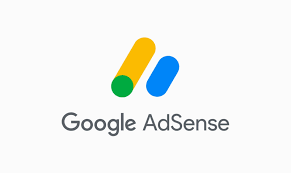
Google AdSense is one of the most widely used ad networks and an excellent starting point for new bloggers. Its automated system matches ads to your blog content, ensuring relevancy and improving user engagement.
With flexible ad formats and a simple setup process, AdSense makes monetization easy for bloggers of all experience levels.
| Pros | Cons |
| Easy to set up, perfect for beginners | Lower revenue for smaller traffic sites |
| Contextual ads improve relevance | Strict policies and account suspensions |
| Reliable payments from Google | High payout threshold of $100 |
Requirements
- Minimum Traffic: No specific requirement; suitable for beginners.
- Content Quality: Original, high-quality content that complies with Google’s content policies.
- Website Age: For some regions, the site must be at least 6 months old.
- Ownership: You must own the website and have access to its HTML source code.
- Privacy Policy: A clear privacy policy must be present on your site.
- Ad Placement Compliance: Ad placements must adhere to AdSense policies.
- Language Support: Your site’s primary language must be supported by AdSense.
- Prohibited Content: No adult, violent, or hate-related content.
- Google AdSense Account: Must not have an existing AdSense account in violation.
Payment Details
- Threshold: $100
- Methods: Bank transfer, checks, or Western Union.
- Cycle: Monthly (Net 30).
How to Sign Up
- Visit Google AdSense.
- Create a Google account or log in with your existing one.
- Submit your blog URL for review and agree to Google’s terms.
- Once approved, you’ll receive an ad code. Copy and paste this code into your blog’s HTML.
- AdSense will begin serving ads, and you can monitor performance through your AdSense dashboard.
2. Media.net

Media.net is a leading contextual ad network powered by Yahoo and Bing, ideal for bloggers in niches like business, finance, and lifestyle.
Its ads seamlessly blend into your content, creating a non-intrusive experience for readers while driving strong revenue, especially for U.S.-based traffic.
| Pros | Cons |
| High RPMs for business and finance niches | Limited revenue potential for global traffic |
| Contextual ads blend seamlessly with content | Requires U.S./UK-centric audiences |
| Great customer support | High payment threshold |
Requirements
- Minimum Traffic: No explicit minimum, but U.S., U.K., and Canada traffic preferred.
- Content Quality: High-quality, original content; niche sites like finance, business, and lifestyle perform better.
- Website Design: Professional and clean layout with easy navigation.
- Traffic Sources: Majority of traffic should be organic; limited incentivized or paid traffic.
- Compliance: Must comply with Media.net’s program guidelines.
- Language Support: Primarily English-language content.
- Prohibited Content: No adult, violent, or illegal content.
- Privacy Policy: Must have a clear privacy policy outlining data collection.
- Ad Placement Compliance: Ad placements should not interfere with user experience.
Payment Details
- Threshold: $100
- Methods: PayPal, Wire Transfer.
- Cycle: Monthly (Net 30).
How to Sign Up
- Visit Media.net and click “Sign Up.”
- Complete the application form with your blog details, including traffic data and niche.
- Media.net will review your blog (approval usually takes 2–5 business days).
- If approved, you’ll receive access to their platform where you can create and customize ad units.
- Place the provided ad code in your blog’s HTML, and the ads will begin running.
3. Ezoic
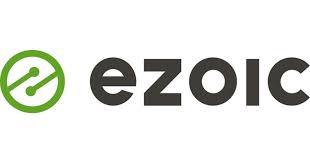
Ezoic uses advanced AI technology to optimize ad placements, maximizing revenue while maintaining user experience. It dynamically tests layouts and formats to identify the most effective setup for your audience.
Ezoic is ideal for bloggers with moderate to high traffic who want to automate ad management and boost earnings.
| Pros | Cons |
| AI-driven optimization for higher revenue | Requires DNS or Cloudflare integration |
| Layout testing tools improve ad performance | Approval process can take time |
| Low payment threshold of $20 | Best suited for medium to high traffic |
Requirements
- Minimum Traffic: At least 10,000 monthly pageviews.
- Content Quality: Original, engaging content that provides value to readers.
- Google AdSense Compliance: Must have an existing AdSense account in good standing.
- Website Design: User-friendly design with clear navigation.
- Traffic Sources: Majority of traffic should be from organic sources; minimal bot traffic.
- Privacy Policy: A comprehensive privacy policy must be present.
- HTTPS Requirement: Site must have an SSL certificate installed.
- Ad Placement Compliance: Willingness to allow Ezoic to test different ad placements.
- Technical Integration: Ability to integrate via DNS or nameserver changes.
Payment Details
- Threshold: $20
- Methods: PayPal, Bank Transfer, Payoneer.
- Cycle: Net 30.
How to Sign Up
- Go to Ezoic and create a publisher account.
- Connect your blog to Ezoic using either DNS integration or Cloudflare.
- Submit your site for approval (typically within 24–48 hours).
- Once approved, use Ezoic’s platform to configure ad layouts and test different ad formats.
- Monitor your earnings and optimize performance using their analytics tools.
4. Raptive (formerly AdThrive)
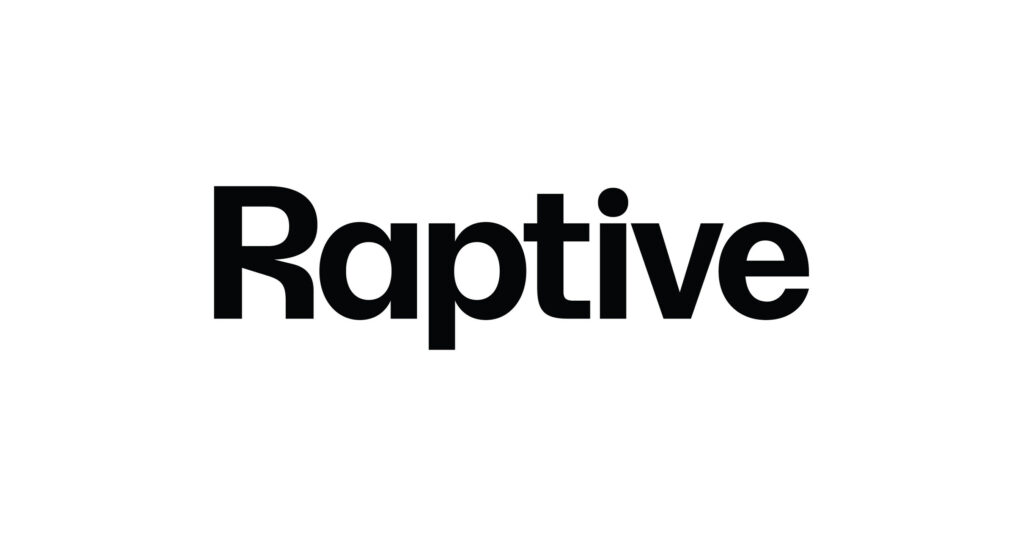
Raptive is a premium ad network catering to high-traffic blogs. Known for its exclusive advertiser relationships, Raptive delivers some of the highest RPMs in the industry.
It prioritizes clean, user-friendly ad placements to maintain audience engagement and boost revenue.
| Pros | Cons |
| Premium advertisers offer high CPMs | Requires 100,000 pageviews for approval |
| Exceptional customer support | Longer payment cycle (Net 45) |
| Focus on clean, user-friendly ads | Not suitable for beginner bloggers |
Requirements
- Minimum Traffic: At least 100,000 monthly pageviews.
- Content Quality: High-quality, original content with strong audience engagement.
- Google AdSense Compliance: Must have an existing AdSense account in good standing.
- Website Design: Professional, user-friendly design with clear navigation.
- Traffic Sources: Majority of traffic should be from the U.S.; high engagement metrics preferred.
- Privacy Policy: Must have a clear and comprehensive privacy policy.
- HTTPS Requirement: Site must be secured with an SSL certificate.
- Ad Placement Compliance: Willingness to implement Raptive’s recommended ad placements.
- Niche Suitability: Content should be brand-safe and suitable for premium advertisers.
Payment Details
- Threshold: $25
- Methods: PayPal, Bank Transfer.
- Cycle: Net 45.
How to Sign Up
- Visit Raptive’s website.
- Submit an application with your blog details, including traffic and niche information.
- Raptive’s team will review your site (approval may take up to 10 business days).
- If approved, you’ll receive instructions for integrating their ad code into your blog.
- Raptive will begin serving premium ads, and you can monitor performance via their dashboard.
5. Mediavine
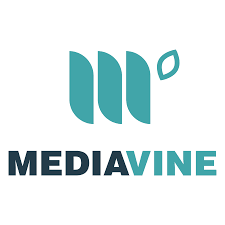
Mediavine specializes in lifestyle and niche blogs, delivering clean, user-centered ad placements with high RPMs. It’s ideal for bloggers with strong audience engagement who want ads that don’t disrupt the reader experience.
| Pros | Cons |
| High RPMs for niche and lifestyle blogs | Requires 50,000 sessions for approval |
| Clean, non-intrusive ad placements | Longer payment cycle (Net 65) |
| Excellent customer support | Competitive approval process |
Requirements
- Minimum Traffic: At least 50,000 sessions in the last 30 days.
- Content Quality: Original, engaging, long-form content in any niche.
- Google AdSense Compliance: Must have an existing AdSense account in good standing.
- Website Design: Clean, user-friendly design with easy navigation.
- Traffic Sources: Verified, human-generated traffic; majority from the U.S. preferred.
- Privacy Policy: Must have a comprehensive privacy policy.
- HTTPS Requirement: Site must be secured with an SSL certificate.
- Ad Placement Compliance: Willingness to adhere to Mediavine’s ad placement guidelines.
- Brand Safety: Content must be suitable for a wide range of advertisers.
Payment Details
- Threshold: $25
- Methods: PayPal, Bank Transfer.
- Cycle: Net 65.
How to Sign Up
- Head to Mediavine and click “Apply Now.”
- Provide your blog’s traffic data, niche details, and Google Analytics credentials.
- Mediavine will review your blog (approval may take up to 7 days).
- If approved, you’ll integrate their ad code into your site.
- Ads will begin displaying, and you’ll track revenue in the Mediavine dashboard.
6. Monumetric
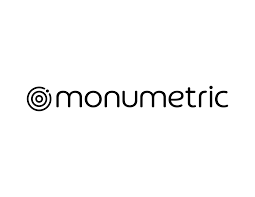
Monumetric is an excellent choice for bloggers looking to monetize smaller to mid-level traffic.
With a minimum requirement of just 10,000 pageviews, it offers a range of ad formats while providing personalized support to help you optimize earnings.
Monumetric balances accessibility with mid-level revenue potential, making it ideal for growing blogs.
| Pros | Cons |
| Low entry requirement (10,000 pageviews) | Setup fee for blogs under 80,000 pageviews |
| Personalized customer support | Requires ads to fill pre-specified slots |
| Diverse ad format options | Smaller RPMs compared to premium networks |
Requirements
- Minimum Traffic: 10,000 monthly pageviews (minimum for their “Propel” program).
- Content Quality: Original, high-quality, engaging content that adheres to Monumetric guidelines.
- Website Design: Professional, clean layout with well-organized navigation.
- Ad Slots: Willingness to allocate ad slots on your site as per Monumetric’s setup.
- Traffic Sources: Organic, human traffic is preferred; no incentivized or bot traffic.
- Setup Fee: For blogs under 80,000 pageviews, there’s a one-time setup fee of $99.
- Ad Placement Compliance: Must comply with Monumetric’s ad placement guidelines.
- HTTPS Requirement: Your site must be secured with an SSL certificate.
- Privacy Policy: A clear privacy policy outlining ad usage and data collection is required.
Payment Details
- Threshold: $10–$100 (depending on plan).
- Methods: PayPal, Direct Deposit, Wire Transfer.
- Cycle: Net 60.
How to Sign Up
- Visit Monumetric and click “Join.”
- Fill out the application form, including traffic stats, blog details, and content niche.
- Monumetric’s team will review your site to ensure it meets their guidelines.
- If your site qualifies, you’ll need to integrate their ad code. For smaller blogs, Monumetric may charge a one-time setup fee.
- Once ads are live, you can track revenue and performance through their dashboard.
7. Infolinks
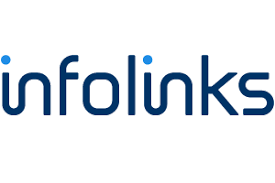
Infolinks specializes in in-text ads that seamlessly integrate into your blog content. By converting keywords into clickable ad links, Infolinks monetizes your existing content without adding excessive banners.
It’s especially effective for informational or content-heavy blogs where readers are highly engaged.
| Pros | Cons |
| Easy to set up, no traffic minimum | Lower earnings for low-traffic blogs |
| Non-intrusive ad formats | Limited to specific ad types |
| Works well for content-heavy blogs | Less effective for visual-heavy content |
Requirements
- Minimum Traffic: No minimum traffic requirement.
- Content Quality: Content must be original, text-heavy, and provide value to readers.
- Website Design: Simple, clean design with a focus on user readability.
- Ad Placement Compliance: Willingness to integrate Infolinks’ script and allow various formats like in-text, overlay, and banner ads.
- Traffic Sources: Organic traffic is preferred, though low-quality traffic (bots) is monitored.
- Language Support: Blog content must be in English or other supported languages.
- Privacy Policy: A privacy policy detailing ad integration and user data is required.
- Prohibited Content: No adult, illegal, or hateful content.
- AdSense Compatibility: Infolinks can be used alongside AdSense without violating policies.
Payment Details
- Threshold: $50
- Methods: PayPal, Wire Transfer, Payoneer.
- Cycle: Monthly (Net 45).
How to Sign Up
- Go to Infolinks and click “Join Us.”
- Register with your blog URL, email, and personal details.
- After approval (typically immediate), install the Infolinks script on your blog.
- Customize the ad formats—choose from in-text, in-frame, or overlay ads.
- Ads will begin running, and you can monitor clicks and earnings in the dashboard.
8. Monetag
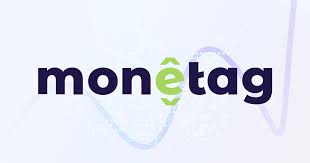
Monetag is a versatile ad network that offers a variety of ad formats, including pop-ups, banners, native ads, and push notifications. It’s designed for bloggers looking to diversify their revenue streams and maximize ad opportunities.
Monetag works well for medium to high-traffic blogs experimenting with non-traditional ad placements.
| Pros | Cons |
| Multiple ad formats for diversification | Some formats (pop-ups) can feel intrusive |
| No strict traffic requirements | Best suited for medium to high traffic |
| Global advertiser network | May impact user experience if overused |
Requirements
- Minimum Traffic: No strict traffic minimum. Suitable for blogs with small to high traffic volumes.
- Content Quality: Original, compliant content that adheres to Monetag’s guidelines.
- Ad Format Integration: Willingness to use Monetag’s multiple ad types, including pop-ups, push notifications, and banners.
- Website Design: The site must have a functional, user-friendly layout.
- Traffic Sources: Organic and human traffic preferred; bot and incentivized traffic are not allowed.
- Privacy Policy: A privacy policy that complies with Monetag’s data usage requirements.
- HTTPS Requirement: Recommended for better ad delivery and user trust.
- Prohibited Content: No adult, illegal, malicious, or misleading content.
Payment Details
- Threshold: $50
- Methods: PayPal, Wire Transfer, Payoneer, WebMoney.
- Cycle: Weekly or monthly, depending on revenue.
How to Sign Up
- Visit Monetag and create an account.
- Submit your blog details for approval (this usually takes 1–2 days).
- Once approved, you can choose from various ad formats in the Monetag dashboard.
- Integrate the ad code or script into your blog’s HTML.
- Optimize ad placements to balance revenue and user experience.
9. Adversal

Adversal is known for its quick approval process and user-friendly setup, making it ideal for blogs that prioritize simplicity.
It offers a mix of display ads, video ads, and native advertising, providing flexibility in monetization strategies. Adversal works best for visual or multimedia-rich blogs with steady traffic.
| Pros | Cons |
| Fast approval process | Minimum traffic requirement of 50,000 visits/month |
| User-friendly and easy to set up | Not suitable for small blogs |
| Offers native and video ad formats | Limited customization options |
Requirements
- Minimum Traffic: 50,000 monthly pageviews.
- Content Quality: High-quality, original content with clear value for readers.
- Website Design: Clean, professional design with a strong focus on user experience.
- Traffic Sources: Organic, human-generated traffic is required; no incentivized or bot traffic.
- Ad Placement Compliance: Ad placements must align with Adversal’s requirements for user experience.
- HTTPS Requirement: Your site must be secured with an SSL certificate.
- Privacy Policy: A visible privacy policy that meets advertising standards.
- Consistent Traffic: Sites must demonstrate steady, reliable monthly traffic.
- Niche Suitability: Content should be brand-safe and appealing to advertisers.
Payment Details
- Threshold: $20
- Methods: PayPal, ACH, Wire Transfer.
- Cycle: Net 35.
How to Sign Up
- Go to Adversal and click “Get Started.”
- Register by providing your blog details, niche, and traffic statistics.
- Adversal will review your blog for approval (typically takes 24–48 hours).
- Once approved, access your account to set up ad formats.
- Place the Adversal ad code on your site and start earning.
10. Revcontent
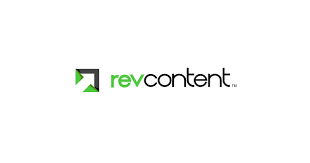
Revcontent focuses on native advertising, offering ads that blend seamlessly into your blog’s content. It’s ideal for content-heavy blogs prioritizing reader experience while driving revenue.
With high-quality advertisers and customizable ad widgets, Revcontent delivers impressive results for blogs with significant traffic.
| Pros | Cons |
| High-quality native ads | Requires 50,000 monthly pageviews |
| Seamless ad integration | Approval process can be strict |
| Great for engagement-focused blogs | Limited ad formats compared to competitors |
Requirements
- Minimum Traffic: At least 50,000 monthly pageviews.
- Content Quality: High-quality, original, and engaging content tailored for a loyal audience.
- Website Design: Professional design with a clean layout and focus on user experience.
- Traffic Sources: Majority of traffic should come from organic sources (U.S. traffic preferred).
- Ad Placement Compliance: Willingness to display native ad widgets that align seamlessly with content.
- Audience Engagement: Strong user engagement metrics like low bounce rates and high session durations preferred.
- HTTPS Requirement: The site must be secured with an SSL certificate for ad performance.
- Privacy Policy: A detailed privacy policy outlining data collection and ad partnerships.
- Brand Safety: Content must be suitable for premium advertisers with no adult, illegal, or misleading material.
Payment Details
- Threshold: $50
- Methods: PayPal, Wire Transfer.
- Cycle: Net 30.
How to Sign Up
- Visit Revcontent and click “Become a Partner.”
- Fill out the application form, providing details about your blog, traffic, and niche.
- Revcontent’s team will review your application (this can take 2–3 days).
- If approved, customize your native ad widgets via their platform.
- Add the widget code to your blog to begin displaying ads and earning revenue.
11. Sovrn (formerly VigLink)
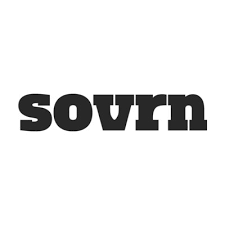
Sovrn focuses on affiliate monetization, making it ideal for blogs that frequently mention products, services, or reviews.
The platform automatically converts regular product links into revenue-generating affiliate links, allowing bloggers to monetize without overwhelming their readers with ads.
| Pros | Cons |
| Automates affiliate link conversion | Requires content with product links |
| Non-intrusive monetization method | Lower earnings for low-product mentions |
| Works well for review and niche blogs | Limited ad formats |
Requirements
- Minimum Traffic: No strict minimum traffic requirement; suitable for blogs with product-focused content.
- Content Quality: High-quality, original content that includes product mentions or review-style posts.
- Website Design: Clean, user-friendly layout with easy navigation.
- Traffic Sources: Majority of traffic should be organic; low-quality traffic, such as bots or incentivized visits, is not permitted.
- Affiliate Link Integration: Willingness to allow Sovrn to convert existing product links into affiliate links.
- Niche Suitability: Ideal for blogs in e-commerce, product reviews, and affiliate marketing niches.
- Privacy Policy: Must include a privacy policy that details the use of affiliate links and cookies for tracking.
- Ad Placement Compliance: Ads and affiliate links must align with Sovrn’s guidelines.
- Prohibited Content: No adult, violent, illegal, or misleading content.
Payment Details
- Threshold: $10
- Methods: PayPal, Wire Transfer.
- Cycle: Net 30.
How to Sign Up
- Visit Sovrn and sign up for an account.
- Connect your blog URL and submit relevant details about your audience and niche.
- Sovrn will review your blog, and upon approval, provide a code to install on your site.
- Start writing content with product mentions; Sovrn will automatically convert relevant links into affiliate links.
- Monitor your earnings through the Sovrn dashboard and optimize content to increase conversions.
12. Snigel
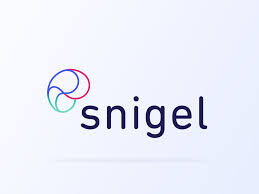
Snigel uses AI-driven ad optimization to deliver high CPMs through real-time ad adjustments.
This platform supports a variety of ad formats, including display, native, and video ads, ensuring your blog maintains a balance between user experience and revenue.
It’s particularly effective for publishers prioritizing fast load speeds and high-quality placements.
| Pros | Cons |
| AI-based optimization for higher CPMs | Not ideal for blogs with very low traffic |
| Supports multiple ad formats | Setup can require technical assistance |
| Emphasis on page speed and experience | Approval process can be selective |
Requirements
- Minimum Earnings: Websites generating approximately $50 USD per day are preferred.
Setupad - Content Quality: High-quality, original content that adheres to Snigel’s guidelines.
- Website Design: Professional, user-friendly layout with clear navigation.
- Traffic Sources: Predominantly organic, human traffic; non-compliant with bot or incentivized traffic.
- Ad Placement Compliance: Willingness to integrate Snigel’s ad technology and adhere to their placement recommendations.
- Privacy Policy: A clear privacy policy outlining data collection and ad usage is required.
- HTTPS Requirement: Site must be secured with an SSL certificate.
- Prohibited Content: No adult, violent, or illegal content.
- Technical Integration: Ability to implement Snigel’s ad scripts and comply with technical requirements.
Payment Details
- Threshold: $50
- Methods: PayPal, Bank Transfer, Wire Transfer.
- Cycle: Net 30.
How to Sign Up
- Go to Snigel and click “Get Started.”
- Submit your blog information, including traffic stats and niche.
- Snigel will review your blog to determine eligibility (this may take 2–5 business days).
- If approved, their team will help you set up the ad code and optimize placements.
- Start displaying ads, and track revenue through the Snigel dashboard.
13. Amazon Publisher Services (APS)

Amazon Publisher Services provides high-quality header bidding solutions and direct access to Amazon’s network of premium advertisers.
APS is designed for established blogs with significant traffic, offering transparent ad auctions that maximize CPMs. It’s particularly effective for blogs with a U.S.-based audience and product-focused content.
| Pros | Cons |
| Premium advertisers and higher CPMs | Requires technical setup (header bidding) |
| Transparent ad auctions | Not ideal for small publishers |
| Works well for product-focused content | Limited to larger publishers |
Requirements
- Eligibility: APS services are typically invite-only, focusing on medium to large publishers.
- Content Quality: High-quality, original content that aligns with Amazon’s standards.
- Website Design: Professional, user-friendly design with clear navigation.
- Traffic Volume: Significant monthly traffic, with a substantial portion from premium geographies.
- Ad Placement Compliance: Willingness to implement APS’s header bidding solutions and adhere to their guidelines.
- Privacy Policy: A comprehensive privacy policy detailing data collection and ad usage is required.
- HTTPS Requirement: Site must be secured with an SSL certificate.
- Technical Integration: Ability to integrate APS’s cloud-based marketplace solutions, which may require technical expertise.
- Prohibited Content: No adult, violent, or illegal content
Payment Details
- Threshold: $100
- Methods: Bank Transfer.
- Cycle: Net 60.
How to Sign Up
- Visit Amazon Publisher Services and create a publisher account.
- Apply for access to Amazon’s Transparent Ad Marketplace.
- Integrate APS with your site using header bidding (this may require developer support).
- Set up ad placements and track performance through the APS platform.
- Begin earning revenue from premium Amazon advertisers.
14. OpenX
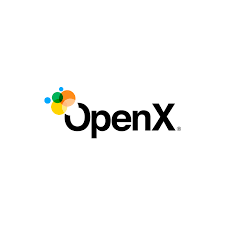
OpenX is a premium ad exchange platform that uses programmatic advertising to help publishers maximize their ad revenue.
With access to high-quality demand partners and real-time bidding technology, OpenX is a top choice for medium to high-traffic blogs looking to increase fill rates and CPMs.
| Pros | Cons |
| Access to premium demand partners | Requires medium to high traffic |
| Advanced programmatic solutions | Setup requires technical knowledge |
| High revenue potential for larger blogs | Not suitable for smaller publishers |
Requirements
- Eligibility: OpenX collaborates with publishers who meet their quality and traffic standards.
- Content Quality: High-quality, original content that provides value to users.
- Website Design: Clean, professional design with user-friendly navigation.
- Traffic Volume: Medium to high traffic volumes are preferred.
- Ad Placement Compliance: Willingness to implement OpenX’s programmatic advertising solutions and adhere to their guidelines.
- Privacy Policy: A clear privacy policy outlining data collection and ad usage is required.
- HTTPS Requirement: Site must be secured with an SSL certificate.
- Technical Integration: Ability to integrate OpenX’s ad technology, which may require technical expertise.
- Prohibited Content: No adult, violent, or illegal content.
Payment Details
- Threshold: $100
- Methods: Wire Transfer, PayPal.
- Cycle: Net 60.
How to Sign Up
- Visit OpenX and submit an application as a publisher.
- Provide details about your blog traffic, niche, and audience demographics.
- OpenX will evaluate your site (this can take 5–10 business days).
- If approved, integrate OpenX’s programmatic ad code on your blog.
- Use their analytics tools to monitor ad revenue and optimize performance.
15. NitroPay
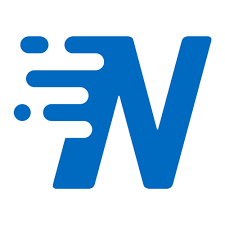
NitroPay focuses on non-intrusive ad placements optimized for both page speed and revenue generation.
It’s particularly effective for sites concerned with user experience, offering display and video ad formats that don’t slow down load times. NitroPay works well for publishers aiming to balance monetization and engagement.
| Pros | Cons |
| Optimized for page speed | Requires moderate traffic for best results |
| Non-intrusive ad placements | Smaller earnings for low-traffic blogs |
| Supports display and video ads | Limited advanced tools compared to others |
Requirements
- Eligibility: NitroPay evaluates publishers based on content quality and traffic metrics.
- Content Quality: High-quality, original content that adheres to NitroPay’s guidelines.
- Website Design: Professional, user-friendly layout with clear navigation.
- Traffic Volume: Moderate to high traffic volumes are preferred.
- Ad Placement Compliance: Willingness to integrate NitroPay’s ad technology and adhere to their placement recommendations.
- Privacy Policy: A clear privacy policy outlining data collection and ad usage is required.
- HTTPS Requirement: Site must be secured with an SSL certificate.
- Technical Integration: Ability to implement NitroPay’s ad scripts and comply with technical requirements.
- Prohibited Content: No adult, violent, or illegal content.
Payment Details
- Threshold: $50
- Methods: PayPal, Wire Transfer.
- Cycle: Net 30.
How to Sign Up
- Go to NitroPay and click “Join.”
- Fill out the application form, including blog details, niche, and traffic statistics.
- NitroPay’s team will review your site and approve qualifying blogs within a few days.
- After approval, integrate NitroPay’s ad code or scripts on your website.
- Monitor your ad performance and earnings through NitroPay’s dashboard.
Understanding Ad Networks for Blogs
Ad networks not only connect you with advertisers but also offer a variety of ad formats to suit your blog’s design and audience.
Choosing the right network means understanding which ad types—like display, native, or video—can maximize your revenue while enhancing the reader experience.
Key Ad Formats and Their Benefits
Display Ads
Display ads are the most common format, often appearing as banners with static images or videos. They’re versatile and easy to implement, allowing seamless integration into different site sections. Well-placed display ads can enhance engagement without significantly disrupting the reader’s experience.
Native Ads
Native ads seamlessly integrate with a blog’s content, creating a subtle and less intrusive experience. By appearing more like part of the organic content, native ads can lead to higher engagement and clicks, especially when they match the tone and style of the blog.
Video Ads
Video ads offer a visually engaging experience, quickly capturing readers’ attention. Although they may slightly impact page load speed, strategically placed video ads can significantly increase revenue, mainly if your audience is accustomed to video content.
Each format offers distinct advantages, and bloggers can experiment to find the ideal balance between income and user experience.
Testing different ad types across various placements can reveal which formats best suit your content and audience, maximizing your ad revenue potential without compromising user engagement.
Choosing an Ad Network That Works Best for You
Selecting the right ad network can significantly influence your revenue potential and the overall user experience on your blog. Here are the critical factors to consider:
Revenue Models and Earning Potential
Ad networks operate on different revenue models, including CPC (cost-per-click), CPM (cost per thousand impressions), and CPA (cost-per-action). Each model aligns differently with audience behavior.
For example, CPC might be more attractive for blogs with engaged readers who frequently interact with ads, whereas CPM might suit sites with high traffic volumes but lower engagement on individual ads.
Minimum Traffic Requirements
Traffic requirements vary among ad networks. Beginner-friendly networks like Google AdSense often have low or no minimums, making them accessible to new bloggers.
Premium networks such as Mediavine or AdThrive (now Raptive) typically require higher page views but offer higher revenue potential. Evaluating your current traffic and growth trajectory will help you choose a network that fits your immediate and long-term goals.
Payout Frequency and Thresholds
Each network has different payout structures and minimum earnings thresholds, which can impact your cash flow. Choose a network with payout terms that suit your financial needs, especially if consistent income is a priority.
Some networks provide faster or more frequent payments, benefiting bloggers seeking a steady income stream.
Ad Quality and User Experience
High-quality ad networks focus on serving relevant, non-intrusive ads visually consistent with your content. This improves engagement and protects the user experience, which is vital for retaining readers.
Ad networks with strict ad quality control help avoid intrusive formats like pop-ups, ensuring a seamless browsing experience that encourages reader loyalty and enhances your blog’s reputation.
Optimizing Ad Revenue: Strategies for Maximum Earnings
The strategies for maximum earnings through ads are given below:
Diversify with Multiple Ad Networks
Don’t limit yourself to just one ad network; using multiple networks can open up new earning possibilities.
Each ad network offers unique advertisers, ad formats, and bidding strategies. Testing a mix of networks—such as Google AdSense, Media.net, or niche ad providers—can reveal which combinations work best for your audience.
This can increase competition for ad space on your site and drive up your CPM (cost per thousand impressions) rates. Just be mindful of ad quality to avoid disrupting user experience.
Use Heatmaps for Strategic Ad Placement
Heatmaps offer invaluable insights into user behavior on your site. They show where visitors click and scroll the most, helping you identify the areas that draw the highest engagement.
Positioning ads in these hot zones—whether above the fold, within content, or near the sidebar—can increase visibility and boost click-through rates. A strategic ad placement plan informed by heatmaps can significantly enhance ad performance without compromising user experience.
Enhance Revenue with Native Ads and Content Recommendations
Native ads integrate naturally with your content, providing a less intrusive experience for users and often leading to higher engagement. Content recommendation networks, like Outbrain or Taboola, offer another way to monetize by suggesting related articles that align with reader interests.
Integrating these ad types on relevant pages or at the end of posts can boost earnings while maintaining an organic feel, encouraging users to click without disrupting the flow of your content.
Analyze and Adjust for Ad Viewability
Viewability—how often users see ads—is a critical metric in ad revenue optimization. Ads placed in positions that users rarely reach or glance over result in lower revenue.
Use analytics tools to assess ad viewability and adjust placements accordingly. Increasing viewability boosts immediate ad revenue and improves relationships with advertisers, as high viewability rates are often rewarded with better CPMs.
Refresh Ads Dynamically on Long Pages
For longer articles, consider implementing ad refresh settings. Dynamic ad refreshing reloads ads after a set time when a user spends extended periods on a page.
This approach allows you to serve multiple impressions within a session, which is especially effective on pages with high engagement. Implementing ad refresh can maximize the monetization potential of high-traffic, long-form content, provided that it aligns with the policies of your ad networks.
Final Thoughts: Maximizing Your Blog’s Ad Revenue
Beyond choosing the best ad networks for blogs and optimizing placements, staying agile and open to emerging monetization tools can provide a competitive edge.
New ad formats, such as interactive and augmented reality (AR) ads, are beginning to gain traction and offer unique engagement opportunities.
Similarly, advancements in programmatic advertising allow for highly customized ad experiences tailored to individual users, driving more precise targeting and potentially higher CPMs.
Additionally, as privacy regulations evolve, ad networks increasingly adopt solutions like contextual targeting over cookie-based tracking. This shift benefits bloggers focused on quality content, as ads will become more aligned with page content rather than user data, creating a smoother, less invasive experience.
Consider diversifying your monetization strategy beyond traditional ads. Subscription models, sponsored content, and affiliate marketing can complement ad revenue, especially for niche blogs.
By embracing these future-focused strategies, you can increase your blog’s revenue potential and create a more resilient income stream in a changing digital landscape.
Related:
- Ultimate Guide To Blog Caching: Boost Your Site Speed Now
- The Ultimate Guide to Must-Have WordPress Plugins for Blogs
- 19 Ways to Promote Your Website For Traffic Growth

We empower people to succeed through information and essential services. Do you need help with something? Contact Us.
Want a heads-up once a week whenever a new article drops?







